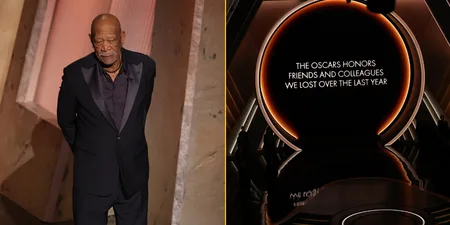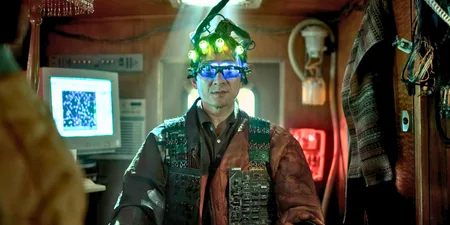“The most vulnerable and the poorest people are treated by this government with a callous brutality that is disgraceful.”
So said director Ken Loach during his BAFTA speech, accepting the award for Outstanding British Film. I, Daniel Blake, Loach’s 25th film, is a savage indictment of the UK benefits system, a system that not only fails its users but deliberately dehumanises them, stripping them of their dignity so that quotas can be met and boxes ticked.
The titular Daniel Blake is a 59-year-old joiner in Newcastle, signed off from work after having a massive heart attack. However, after being deemed fit to work by a government ‘decision-maker’, he loses his disability benefits and has to sign on for Jobseeker’s Allowance.
Daniel is forced to spend 35 hours a week applying for jobs he can’t take, sit through patronising CV classes that won’t help him, all while he’s supposed to be recovering from a major illness. He appeals the decision, but struggles to navigate the computerised system – he doesn’t even own a computer, let alone know how to use one.
At the Jobcentre, he meets single mum Katie and her two kids, forced to move from a homeless shelter in London up to Newcastle. New to the area, Katie narrowly misses her appointment and is sanctioned – her benefits stopped because she got lost. She starves herself so her children can eat, leading to a staggering scene of raw humanity set in a food bank.
Despite the hardships, the best of human qualities shine in I, Daniel Blake: strength in the face of adversity, looking out for each other, decency and community spirit working where administration fails. People taking care of people. It’s a remarkable, powerful film, but a bleak one, and for some an all-too-real one.
I, Daniel Blake won the prestigious Palme d’Or award at the Cannes Film Festival in 2016 and garnered praise from all but the most right-wing of critics, most of whom will never have set foot in a Jobcentre. For it to win Outstanding British Film at the BAFTAs, however, is a statement.
Daniel is not a scrounger. He has a valuable trade and wants to work; through ill health he is prevented from doing so. Government-appointed, non-medical officials override his doctors and endanger his life by cutting off his support. He is beleaguered and belittled by a system whose only goal is to “get his name off the computer”.
There are Daniels and Katies in every town and city up and down the country, good people brutalised by an unsympathetic benefits system, with lethal consequences: in 2015 a Department for Work and Pensions report revealed that as many as 90 people a month were dying after being declared fit to work.
Mark Wood starved to death after he was declared fit to work, despite severe and complex mental health issues. Michael O’Sullivan killed himself because his disability benefits were cut. David Clapson, a former soldier, died two weeks after his benefits were cut for missing two appointments. These are real people who were failed by the system meant to support them.
Britain has an obsession with scroungers and benefits cheats. This obsession drives the government into punishing legitimate claimants for exercising their right to assistance. Compassion is a dirty word; to care is to mollycoddle; neither a borrower nor a lender be; I’m alright, Jack, so what’s your problem?
I, Daniel Blake deals with an ugly side of British society that needs to be addressed, the side that sees anti-homeless spikes installed outside medical centres, the side that turns away child refugees from war-torn countries, the side that treats needy people with suspicion, like thieves before the theft.
But as long as people put cushions over spikes, as long as people demand that innocents be protected, as long as people make and see films like I, Daniel Blake, people stand a chance of being treated like people.








































